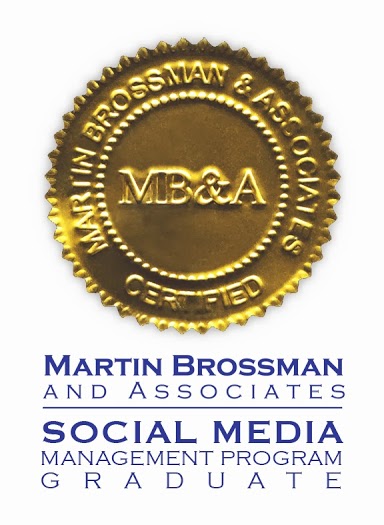There aren’t too many ways to finish that sentence that are going to have a positive impact on your productivity in the short-term.
A few, perhaps: Woody Allen said the most beautiful word in English was “benign.” However, even a positive surgical outcome means there will be some time lost to visits to doctors and physical therapists, recovery, rehabilitation, searching out stores that sell products you never knew existed, and finding your way into whatever new life will come after surgery. In my case, the surgeon said, “The pin has to stay until Thanksgiving.” He believes he told me this before the surgery. I believe I did not hear him say it. At this point, that truth doesn’t matter.* I have a pin in my finger. I can’t type. You can put off a lot of computer work for 10 days that you can’t put off for 6 weeks.
As a self-employed person, there’s more to being out of work than “getting a note from the doctor.” I was already behind in my responsibilities, and I knew my fledgling business could not sustain a month without typing.
Full disclosure: I was only out one joint, possibly the tenth least important joint in my body (distal interphalangeal joint, fifth finger, right (dominant) hand). Importance notwithstanding, I could not type the way I’m used to. Not only was it uncomfortable to attempt to type without one finger when I’m normally a fairly fluent touch typist; the act of looking for letters with the wrong finger and frequently hitting the wrong key disrupted my thinking and made it very very difficult to compose anything other than an e-mail address or a subject line.
I solved most of my problem by buying voice recognition software, training it to recognize my voice, and learning to use it. This is a nontrivial effort; and I talk about that project in the article, Voice Recognition Software.
The larger point, however, is this: no matter what amount of preparation I have (ever) done for surgery, I have always been surprised by how disabled I am post-op and how long it takes to return to full functionality. I believe I get all the information I need to make preparations for surgery and that my surgeons have always done their best to tell me about the outcome and the recovery. Nonetheless, there’s an enormous delta between my anticipations and reality. (I have been blessed that to date, I have not had an operation or a health event that left me less than fully functional in the long term.)
Physical therapists often have a better grasp of the realities of immediate post-op life and abilities than doctors. Unfortunately, you rarely talk to the physical therapist much before surgery and you may not know the right questions to ask. After having two knees arthroscoped and working with extensive physical therapy afterwards, I know what the therapist means when she says, “oh, yeah!” when I ask her about whether I’ll need therapy on my hand when the pin comes out. That little bit of information was invaluable; I would not be typing any more fluently at the end of November than I was at the beginning. I had to find a solution other than “waiting.”
| Your surgeon says | You hear | The truth |
| You can walk without crutches | You can walk | You can walk all the way to the end of the driveway and back. You cannot walk far enough into Best Buy to get a new PC. |
| You will get a wrist splint | You’ll regain the use of your elbow | After six weeks of not moving, your elbow will hurt so badly you won’t be able to do much at all, at least not right away |
| The pin can come out | You’ll be able to move the joint | You’ll have to wear a splint for two more weeks, and even then, you won’t be able to move the joint without extensive PT |
This post is about acceptance and providing yourself with the tools that you need to make the fullest use of the abilities you have. In my case, I needed freedom from the keyboard and voice recognition software provided what I needed. Were I more seriously disabled, or expected to be out of typing for a lot longer, I might have had to buy the more expensive program ($900) that ran all the software applications on my PC instead of the cheaper version ($300!), which works in Word and Excel only.
I was fortunate, in that I was able to plan and schedule my surgery. Not everyone has that freedom. Having systems in place before you need them makes being disabled just a tiny bit easier:
- Tickler files that I can count on to tell me when something needs to be handled
- Reliable calendars that tell me when I can get to, and when I have to get to, the doctor
- A reliable address book and phone contact list on my cell phone
- A system for handling bills and health care reimbursement account requests
I don’t have it right yet. I know that I need to post all financial transactions before surgery and stay out of my checkbook for at least a week afterward. I know to pay bills ahead. I know to allow myself to be as flat and useless as I need to be in the days immediately after surgery, especially when I’m taking a controlled pharmaceutical. I know not to drive. I don’t know that I would have found the time to learn voice recognition before I was disabled (or, for that matter, to put up with its on-going headaches).
One of the hardest things to do when confronted with a major involuntary change is accept the limitations of the new situation. Perhaps it was a reluctance to accept my own limits that made me believe the pin was coming out 10 days post-op, with the stitches, instead of four weeks later. If I had accepted that, I might be a week ahead in training the voice recognition software. I’ll get over it. I hope I’ll do better next time.
* In defense of surgeons
I can be misled by people other than surgeons. It’s important to verify other people’s reports of their own surgical recovery. I allowed myself to be misled when someone told me his knee arthroscopy was trivial. Based on this person’s input, I almost scheduled the surgery in the middle of a massive home renovation project. Fortunately, I didn’t have enough money to cover the co-pays. I postponed the surgery till the next year’s health care reimbursement account could be funded and tapped. When I had to deal with my post-op limitations, I was infinitely grateful that I had not also been in the middle of a home renovation project where I had to do a great deal of manual labor. I was in no shape to be rebuilding windows seven days post-op.
The person I talked to had gone on to have double knee replacement, and it’s quite possible that in the light of the work required to recover from knee replacement, arthroscopy looks trivial. Everyone has a difficult a different surgical experience.



Follow Us!